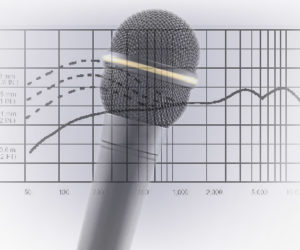A while back I was driving in my car when Cher Lloyd’s pop hit “Want U Back” came on the radio.
It was my first time hearing the song, and a very strange thing happened – by the third beat of the intro, literally two seconds into the song, something very low on my brain stem went “Yes! This is a great song!” and I leaned forward and turned it up.
There’s no possible way that I could have come to an informed, rational decision about whether I liked the song within two seconds. After all, my favorite bits – the drum beat and the catchy verse melody – hadn’t happened yet.
I vividly remember that reaction, and had been very perplexed by it, until recently reading Malcom Gladwell’s riveting book “Blink: The Power Of Thinking Without Thinking.”
I can’t really do justice to the premise here – honestly, just read it – but Blink is an examination of this exact phenomenon, that instinctive, gut-level, 2-second intuition.
Gladwell describes several fascinating examples: how a few experts on Greek sculpture could spot a forgery in seconds despite a 14-month scientific study that pronounced it genuine; how an expert tennis coach realized that he could predict rare double-faults before they happened even if he’d never seen the players before; how an orchestra conductor could tell within a few notes the skill level of an auditioning violinist; and how a firefighter, on a gut instinct, ordered his men out of a burning building moments before it collapsed.
Absorbing The Nuances
I don’t wish to spoil the book or misrepresent the research, but what I took away from it is that people who can do these sorts of things are, without exception, experts in their field. They’ve spent so much time absorbing the nuances of what they do that the subconscious mind provides a result while the conscious mind is still evaluating, and gathering information.
We all do this. It’s how we instinctively pull our hand from a hot stove even before we feel the sensation of heat, or – Gladwell’s example – leap out of the path of oncoming traffic.
He points out that humanity, as a species, could not have survived this long without the ability to make “very quick judgments based on very little information.” It’s an ability Gladwell refers to as “thin-slicing.” His experts have spent years compiling enormous mental databases that allow them to apply this blink-of-an-eye judgment mechanism to their area of expertise.
Since this process is so much faster than the conscious one, the experts weren’t always able to provide a rationale for their conclusion. As he writes in Blink, “Did they know why they knew? Not at all. But they knew.”
Decision Mechanism
I find this exceptionally relevant to live sound, as we have to make mixing and troubleshooting decisions in real time as the music unfolds. We can’t go back to the top and do a step-by-step analysis of the issues – we have to just know.
In live sound, the right decision is the wrong decision if it doesn’t come until after the show’s been loaded out. I’ve heard several engineers say that mixing puts them in a very relaxed, almost meditative state, responding without thinking too much. I think they’re “thin-slicing,” letting that rapid subconscious decision mechanism take the wheel.




